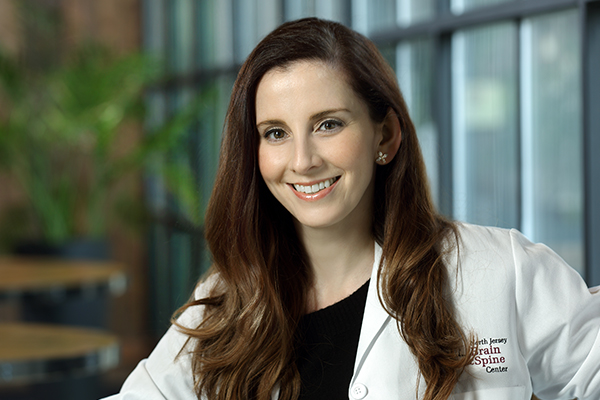
At New Jersey Brain and Spine, collaborating closely with other specialists—both inside and outside our practice—is a critical aspect of our approach to patient care. It’s also one of reasons that our patient outcomes are among the best in the nation.
While our practice is made up of some of the most highly experienced and highly trained neurologists and neurosurgeons in the country, we never hesitate to partner with other physicians and neurology experts. Each patient has their own unique set of goals, and we firmly believe in a collaborative approach to provide the best care.
These collaborations transpire in a variety of ways depending on each patient’s needs, including:
- Partnering internally across our physician teams (for example, between a neurology expert, neurosurgeon, and physical therapist)
- Partnering with outside specialists (for example, with experts in other fields of discipline, whether that be physicians, geneticists, counselors, or research coordinators)
- Partnering with area hospitals and leading clinical trials, such as an immunotherapy trial to treat acute spinal cord injuries.
Here are three of the biggest benefits our patients experience as a result of our collaborations:
Higher Quality Care and Better Outcomes
Most physicians and hospitals understand the importance of collaborating to enhance patient care. But at NJBS, collaborating is part of the fabric of our culture. Brain and spine conditions inherently rely on a comprehensive approach, so it is critical that we work with a team of other doctors to determine the best course of treatment for each patient.
As a neurologist, for example, I know that my neurosurgeon colleagues at NJBS are always available if I’d like a second opinion or consultation. If we feel that outside expertise is needed, we have a strong network of trusted specialists and physicians that we turn to for additional insight.
A Holistic and Integrated Approach
At NJBS, our neurology experts and neurosurgeons specialize in a variety of key areas. This ensures patients receive care from experts with subspecialized training and experience relevant to their specific condition. However, many of our patients also experience other health problems and concurrent conditions. We feel strongly that for these patients to receive optimal care, we must collaborate closely with outside experts.
For example, I specialize in the treatment of movement disorders, including Parkinson’s disease. Parkinson’s disease affects many body systems and functions, and can contribute to other conditions like insomnia, constipation, urinary dysfunction, depression, and dementia. This is why I work with sleep specialists, gastroenterologists, urologists, psychiatrists, and others. These collaborations ensure I make the most informed decisions related to each patient’s diagnosis and treatment.
Optimal Communication Between Providers
Since we regularly consult with other specialists, our patients at NJBS experience a streamlined treatment journey. For example, when a patient first comes to see me, I create a preliminary treatment plan, including identifying the other specialists that should be included in the patient’s care journey.
When I refer the patient to another specialist as part of the treatment plan, I communicate with that specialist regularly to ensure I’m well-informed. This reduces the burden on the patient, because they don’t need to keep track of the information they received from the specialist, and ensures no relevant patient health information slips through the cracks.
Dr. Elana Clar is one of the most highly trained neurologists in the country for the treatment of movement disorders. Following her residency at Georgetown University, she completed a two-year movement disorders fellowship at Mount Sinai Beth Israel Medical Center, where she obtained subspecialty training in deep brain stimulation. She treats all types of movement disorders, including Parkinson’s disease, atypical parkinsonism, ataxia, dystonia, spasmodic torticollis, essential tremor, hemifacial spasm, blepharospasm, and vocal/motor tics. Learn more about Dr. Clar.


